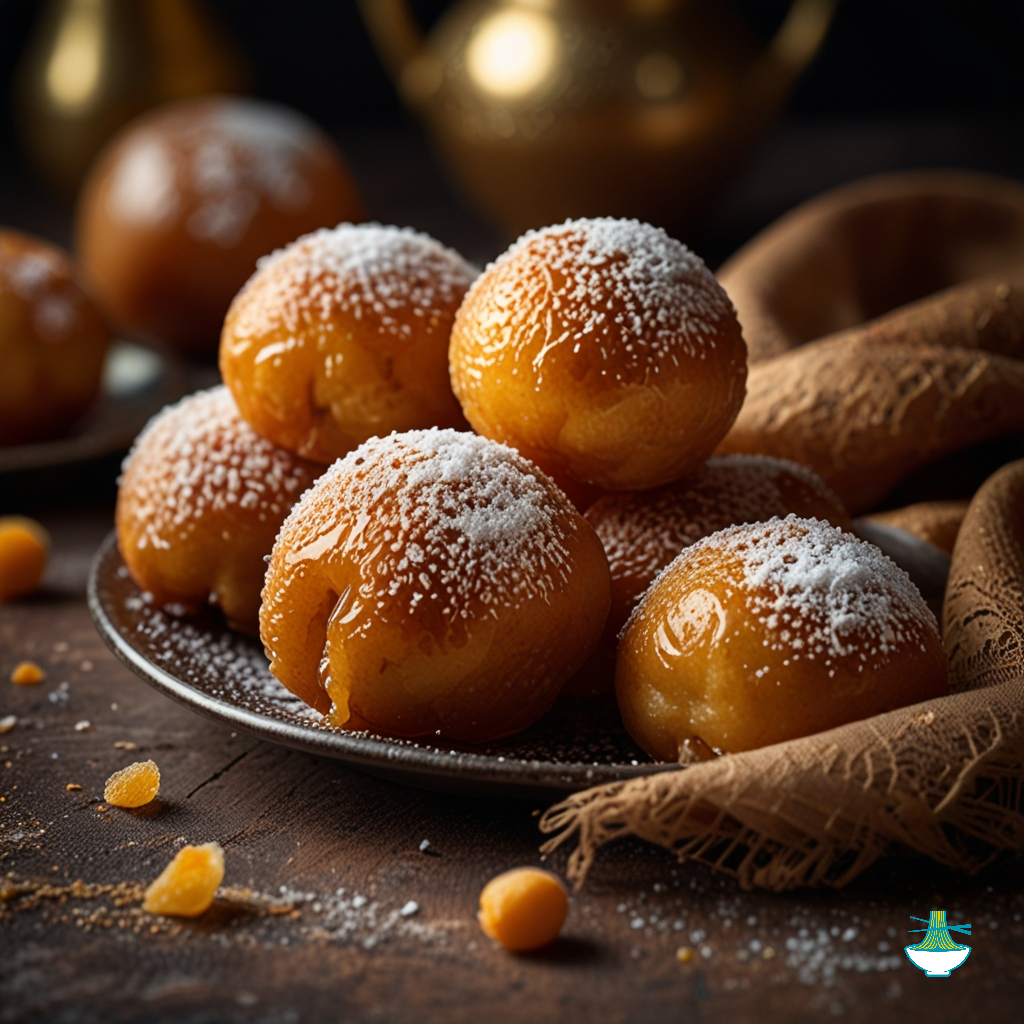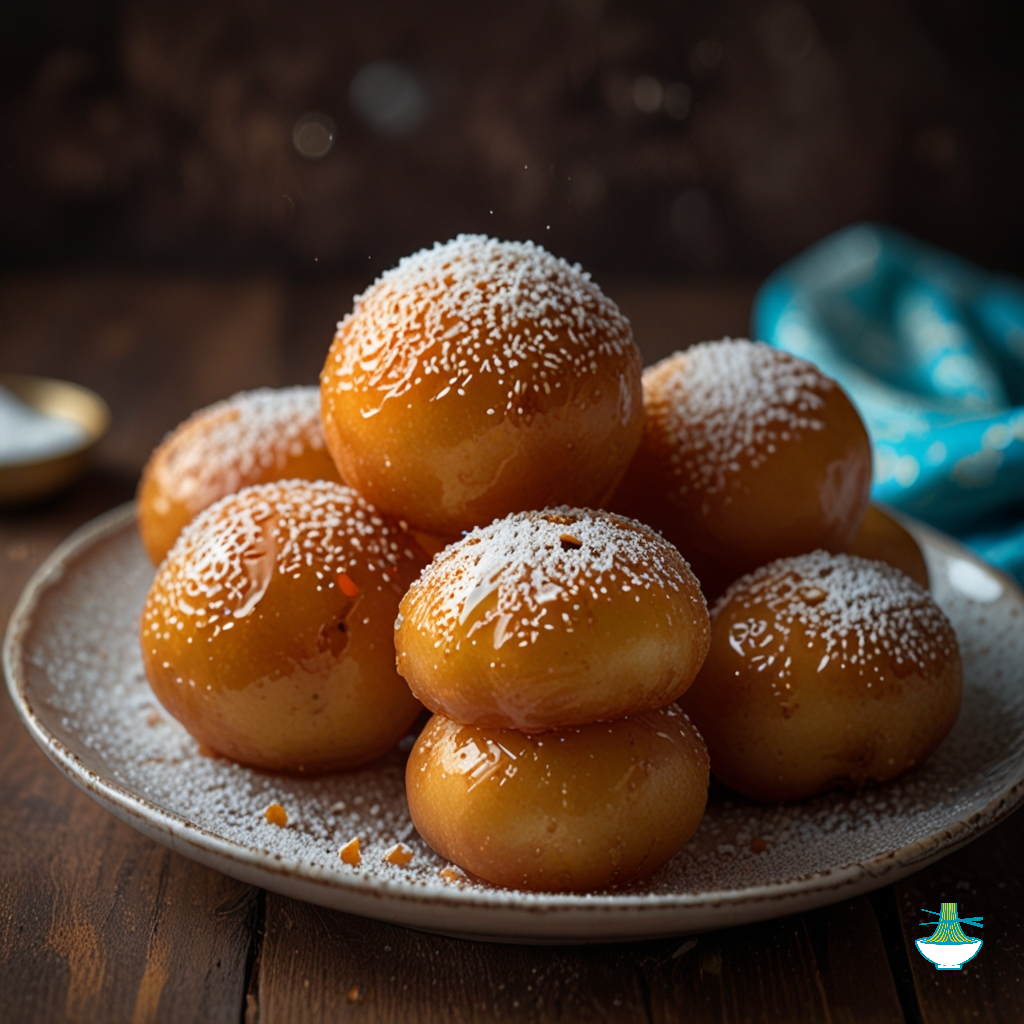Shakarap, a beloved traditional Uzbek sweet, entices with its crispy fried dough balls bathed in a luscious sugar syrup. This delectable dessert has long been cherished during holidays and celebrations in Uzbek culture, offering a delightful treat to share with loved ones. With a history steeped in culinary tradition, Shakarap showcases the richness of Uzbek cuisine and the artistry of its preparation, making it a cherished part of festive gatherings and joyous occasions.
Ingredients:
- 2 cups all-purpose flour
- 1 cup water
- 1/4 cup granulated sugar
- 1/4 teaspoon salt
- Oil for frying
Method:
1. In a mixing bowl, combine the flour, water, sugar, and salt to form a smooth dough.
2. Heat oil in a deep frying pan over medium heat.
3. Pinch off small pieces of dough and roll them into balls.
4. Carefully drop the dough balls into the hot oil and fry until golden brown and crispy.
5. Remove the fried dough balls from the oil and place them on paper towels to drain excess oil.
6. In a separate saucepan, prepare a sugar syrup by combining equal parts sugar and water. Bring to a boil, then reduce heat and simmer until slightly thickened.
7. Dip the fried dough balls into the sugar syrup, ensuring they are evenly coated.
8. Allow the Shakarap to cool slightly before serving, and enjoy this delightful Uzbek sweet with friends and family during holidays and celebrations.
Nutrition Value:
1. All-purpose flour (2 cups):
- Calories: Approximately 800 kcal
- Carbohydrates: Around 168 grams
- Protein: Roughly 20 grams
- Fat: Negligible amount
- Sodium: Minimal
- Cholesterol: None
- Vitamins: Contains small amounts of B vitamins, particularly niacin and thiamine.
- Minerals: Contains small amounts of iron and magnesium.
- Nutritional Benefit: Provides energy from carbohydrates and some protein, along with small amounts of essential vitamins and minerals.
2. Water (1 cup):
- Calories: 0 kcal
- Carbohydrates: 0 grams
- Protein: 0 grams
- Fat: 0 grams
- Sodium: 0 milligrams
- Cholesterol: 0 milligrams
- Vitamins: None
- Minerals: None
- Nutritional Benefit: Essential for hydration and to bind the dough ingredients together.
3. Granulated sugar (1/4 cup):
- Calories: Approximately 200 kcal
- Carbohydrates: Around 50 grams
- Protein: 0 grams
- Fat: 0 grams
- Sodium: 0 milligrams
- Cholesterol: 0 milligrams
- Vitamins: None
- Minerals: None
- Nutritional Benefit: Provides sweetness and energy from carbohydrates, but lacks significant vitamins and minerals.
4. Salt (1/4 teaspoon):
- Calories: 0 kcal
- Carbohydrates: 0 grams
- Protein: 0 grams
- Fat: 0 grams
- Sodium: Varies based on brand, but typically around 590 milligrams
- Cholesterol: 0 milligrams
- Vitamins: None
- Minerals: None
- Nutritional Benefit: Adds flavor and helps to enhance other flavors in the dish. However, excessive consumption of sodium can be harmful to health.
5. Oil for frying:
- Calories: Varies based on type and amount of oil used, but typically around 120 calories per tablespoon (approximately 15 ml).
- Carbohydrates: 0 grams
- Protein: 0 grams
- Fat: Approximately 14 grams per tablespoon
- Sodium: Varies based on type and amount of oil used
- Cholesterol: 0 milligrams
- Vitamins: Depends on the type of oil used, but may contain vitamin E (particularly in oils like sunflower or olive oil).
- Minerals: Depends on the type of oil used, but may contain small amounts of iron and other minerals.
- Nutritional Benefit: Provides fat for frying, which adds flavor and texture to the dish. However, it's important to consume fried foods in moderation due to their high calorie and fat content. Opting for healthier oils like olive or avocado oil can provide additional nutritional benefits.


Comments